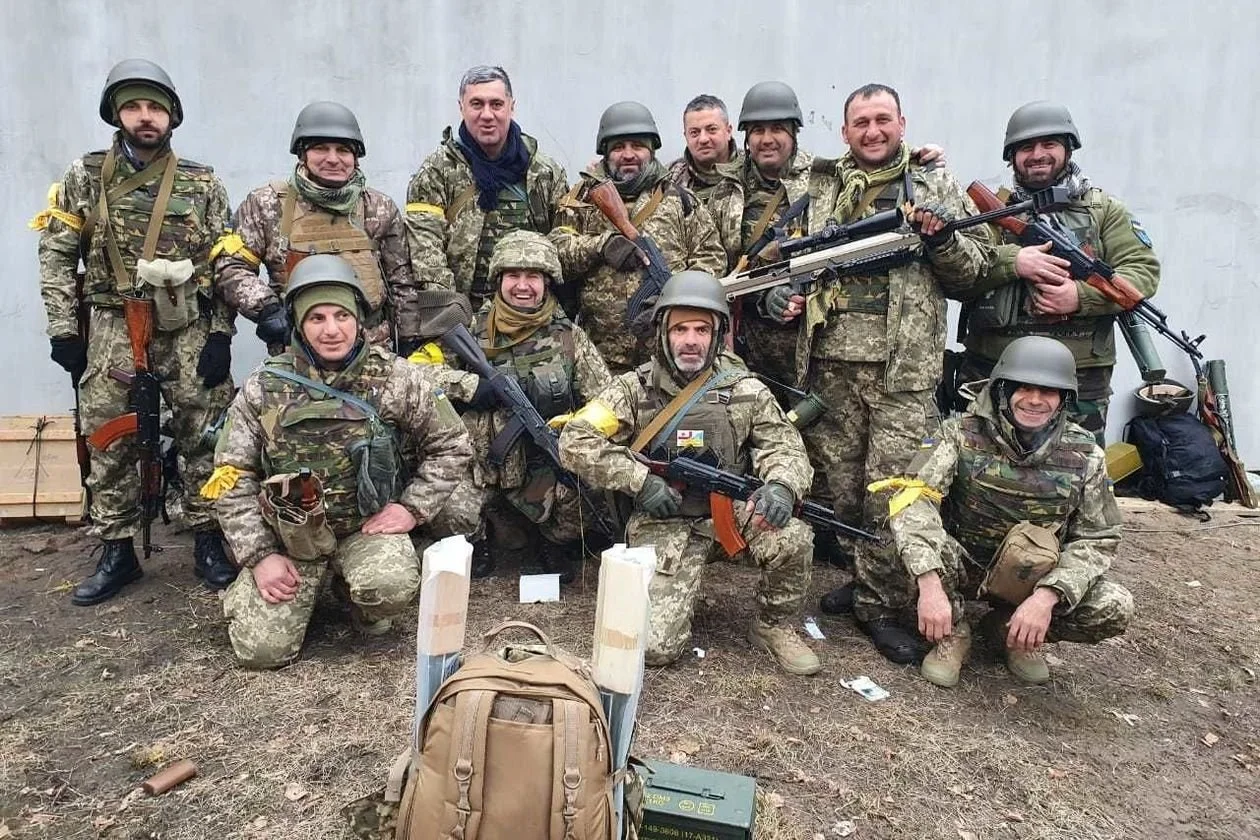Volunteers from Around the World Join the War in Ukraine
Volunteers in Ukraine’s International Legion of Territorial Defense pose for a photo. Source: The Washington Post
Less than a month ago, Brazilian shooting instructor Tiago Rossi had no active combat experience; today, he is fighting as a volunteer for Ukraine against Russia, one of the world’s strongest militaries. “I came here to fulfill my mission - if I die it’s because that’s how God willed it,” Rossi said of his decision. According to Ukrainian officials, he is one of almost 16,000 international volunteers who has signed up to join Ukraine’s new International Legion of Territorial Defense.
Formed by Ukrainian President Volodymyr Zelensky just three days after the Russians invaded, Ukraine’s foreign legion provides an opportunity for international onlookers to directly participate in the conflict. To join, candidates must have a passport, some combat knowledge, and a willingness to fight of their own accord. So far, volunteers hail from all over the world, each having their own reasons for joining. Some, like Rossi, associate Russia’s aggression with left-wing paramilitary groups in South America and want to fight against what they believe is a similar ideology; many are Ukrainian internationals returning home to fight alongside loved ones. Despite their underlying differences, almost all volunteers seem able to agree on one thing: Russia’s aggression must stop with Ukraine, or it will continue to other countries next.
Ukraine’s foreign legion has raised questions about the legality of international volunteers serving in a war outside of their home country. Most countries have no laws against their citizens fighting in foreign wars, and several governments around the world have even expressed support for the idea. British Foreign Secretary Liz Truss echoed Zelensky’s call for foreigners to join the conflict to protect not only Ukraine, but all of Europe. Latvia, Canada, and Sweden have followed suit, saying that individuals have the right to join the war. Even in the United States, it is legal for a citizen to join a foreign conflict, but the United States has not yet gone so far as to encourage it. In response to volunteers joining the conflict, Russia has stated it will label anyone who does so as a mercenary and that they could face prison time if captured. International participation in the effort also raises questions about treatment of volunteers, as there is disagreement as to whether or not they are combatants under the Geneva Conventions.
Despite their good intentions, international volunteers already in Ukraine have reported being disillusioned by their experiences so far. One American was angry that, upon arrival, he was placed in a unit with Ukrainian civilians who were also training to become soldiers. “They expect me to guard the base with no guns, no armor, no vest, no helmet and no knowledge of the Ukrainian language,” he said. “It makes absolutely no sense.” Another volunteer was rejected from his assigned unit for having ties to the American extremist group known as the “boogaloo boys,” calling the foreign legion a “trap” when he was prevented from leaving Ukraine afterward.
Overall, the presence of volunteers in Ukraine highlights the good intentions of international onlookers in supporting Ukraine against Russia’s aggression. However, the experiences of those who have joined raise questions about the organization and effectiveness of foreign legions. Some experts believe that, despite the willingness to put themselves in harm's way, these volunteers will prove more useful politically than militarily as they highlight the conflict and how it affects not only Ukraine, but the rest of the world.

